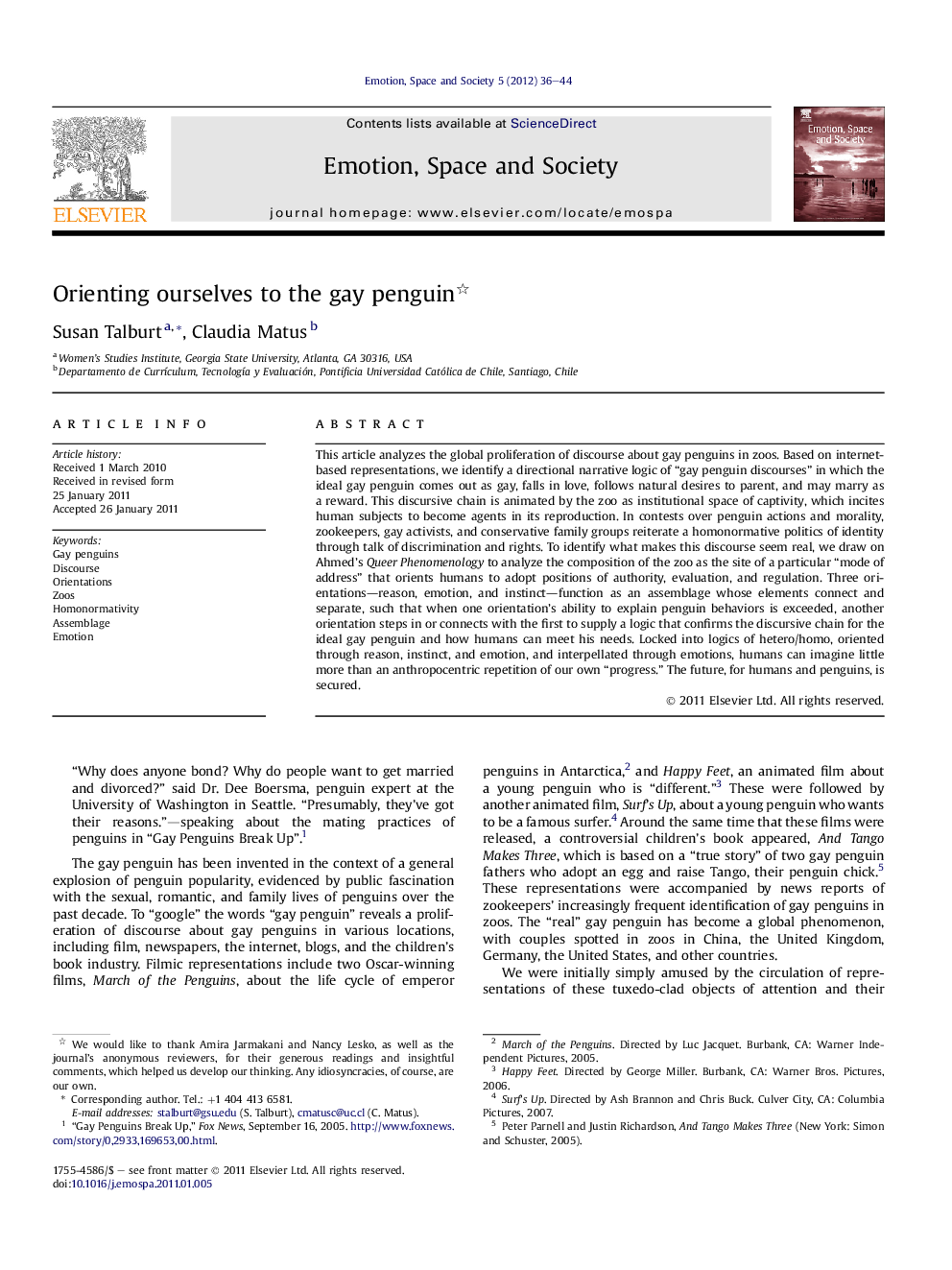| Article ID | Journal | Published Year | Pages | File Type |
|---|---|---|---|---|
| 946754 | Emotion, Space and Society | 2012 | 9 Pages |
This article analyzes the global proliferation of discourse about gay penguins in zoos. Based on internet-based representations, we identify a directional narrative logic of “gay penguin discourses” in which the ideal gay penguin comes out as gay, falls in love, follows natural desires to parent, and may marry as a reward. This discursive chain is animated by the zoo as institutional space of captivity, which incites human subjects to become agents in its reproduction. In contests over penguin actions and morality, zookeepers, gay activists, and conservative family groups reiterate a homonormative politics of identity through talk of discrimination and rights. To identify what makes this discourse seem real, we draw on Ahmed’s Queer Phenomenology to analyze the composition of the zoo as the site of a particular “mode of address” that orients humans to adopt positions of authority, evaluation, and regulation. Three orientations—reason, emotion, and instinct—function as an assemblage whose elements connect and separate, such that when one orientation’s ability to explain penguin behaviors is exceeded, another orientation steps in or connects with the first to supply a logic that confirms the discursive chain for the ideal gay penguin and how humans can meet his needs. Locked into logics of hetero/homo, oriented through reason, instinct, and emotion, and interpellated through emotions, humans can imagine little more than an anthropocentric repetition of our own “progress.” The future, for humans and penguins, is secured.
